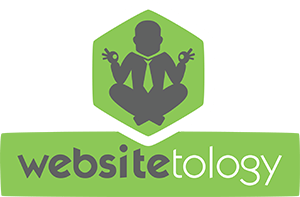The best way to deliver your information to the world requires the best content management. We explore WordPress as one of the tools you can use. We stick to Open Source solutions that run on Linux utilizing MySQL.
uPress is a WordPress plug in to allow you to post events- with starting and ending dates- or to list items with expiration dates. It is an example of microformats in action. It is still a .4 release and may not notify search engines as nicely as WordPress does, but for a few of our clients- and for listing seminar dates- it may come in really handy. What better place to test it than here.
We thought it would automatically delete the event when it was done- it didn’t. But, we are going to keep using it- just because it makes the info easy to find.
About Microformats
To quote my online buddy D’Arcy, anyone who tells you they are an expert in this field of making sense of cyberspace isn’t telling you the truth: it changes too quickly for anyone to know it all.
I’m the first to tell a potential client what I don’t know- but hopefully, I can make a connection for them to someone that does know a lot about that area.
So- when I came across this site about “Micro Formats” and read the about- I was excited. Here is a new way of trying to make sense out of the chaos we have on the Internet as things change so quickly- and it’s called MicroFormats- using common, existing data vocabulary to build things we need.
Unlike, say, the video production industry that builds a new format every other week (there are about 18 different Hi Definition “standards” for video)- the “MicroFormat” movement is trying to use existing tech to accomplish things in a simple way. Much like the way Apple forced developers to use the same interface and formats to make it easy to interchange data and learn different programs on a Macintosh – microformats are trying to keep things simple.
You don’t have to understand the code- you just need to be able to use it and exchange it could be thier mantra.
Hopefully, this movement will gain traction- making it easier for all of us to become “experts” in this new media world.
Today I attended the “How to drive traffic to your website, and what to do when it gets there!” seminar at Wright State University and sponsored by the SBA and the Ohio Small Business Development Centers.
From the Dayton Daily News article, it is a “3-hour workshop presented commercially nationwide for $295” – which it turns out- isn’t true. “Dr. Jerry” said that that seminar was an all day seminar- but that he was going to speak faster for us so we would get the same info- just in a shorter period of time. If I made this claim, the Dayton Ad Club and the Better Business Bureau would be all over me.
There were almost 50 people in the room, and I did everything I could do not to say anything to correct some of the patently incorrect information that was given. My favorites were his explanations of how search works- mostly based on scores of keywords- which might have been fine 4 years ago- but is no where close to how page rank is established now. He claimed that links in weren’t important for building incoming traffic (my stats would say differently).
A woman asked about new entries to the web; “Do you get a better position when new” was totally wrong. He claimed that Google actually won’t index a new site for several days- and there is a “Sandbox effect” where a page will rise in rank over time. Google knows the web is changing daily- and that most of the time people are looking for the most recent information available. A perfect example of current topics rising to the top of search was within days of launch of the new Apple iPod nano, a kid blogged about how his broke- and Apple wouldn’t fix it. Not only was his site instantly a huge hit, it attracted so many other stories that a class action lawsuit was filed soon after and Apple changed its repair policy.
The list of things we cover in blogosopher would exceed the 21 page handout he provided- but, to briefly cover the most important things he didn’t talk about: Blogs, RSS, CSS, how to build online relationships, Open Source solutions, Static vs Active vs Live sites, web standards, accessibility standards, alt tags, how search is changing site design, mass e-mail management, how URL’s are largely irrelevant (his suggestion was to buy every URL variation, and extension including misspellings because they are cheap), how the web will change the way we do business even more so in the future. (more…)

